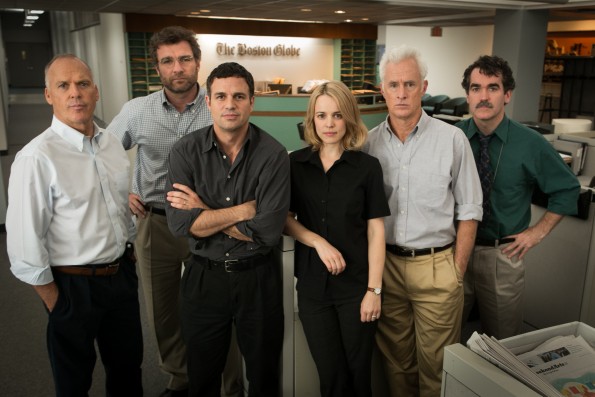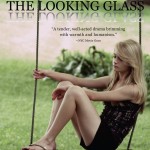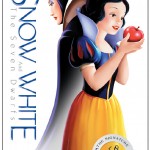The Academy of Motion Picture Arts and Sciences announced its nominees for the Oscars this week. With the exception of the omission of Todd Haynes’s Carol (a film I wasn’t all that enthusiastic about), there were no big surprises in the Best Picture category.
Before the ceremony to announce the winners on February 28th, I’ll be asking some regular contributors to make and explain their own selection from among the nominated films.
Spotlight was not the nominee that ranked the highest on my list of personal favorites; that would be Brooklyn. So rather than simply repeat my TIFF review of Spotlight at Christianity Today, I will try to articulate one or two differences between personal favorite and best picture choice.
One obvious point to be made is that Spotlight is a film that is socially and morally significant in addition to being artistically excellent. The depiction of The Boston Globe‘s team of investigative reporters peeling back the layers of secrecy surrounding the sexual abuse perpetrated by clergy in the diocese is somber, informative, and meditative. We see the devastating emotional impact of sexual molestation and have conveyed the scope of the scandal.
For me, the most admirable aspect of Spotlight is its willingness to go beyond simply castigating the immediate perpetrators of evil deeds. At least one pedophile is portrayed as so delusional its hard not to consider him mentally ill, complicating our emotional need to boo and hiss at monsters. On a broader scale, those who come into contact with the scandal become complicit to one degree or another as the power of the Roman Catholic church and the fear of being the first to sound the alarm end up creating a culture of acquiescence and compliance masquerading as respect. A work of art is not responsible for changing social policy, but this one at least strives to go beyond saying “this happened” and nudging viewers to consider why and how it happened.
in whatever corners of the blogosphere I frequent, I’ve sensed that such an argument is not fashionable, that the pendulum has swung the other way and it is fashionable now to bash “Oscar fodder” and champion works that are experimental, formally inventive, and (perhaps as a result) pitched to more of a niche audience. We’re not at the point yet where we pick one best picture for form and another for content, but it does feel like we are arguing a lot about which matters more.
Here’s the thing, though, Spotlight is not without technical craftsmanship. The script covers a lot of ground and incorporates a lot of people. The performances are understated but powerful. Over at ScreenCrush, Matt Singer has pushed back on the lazy sniping at Spotlight’s direction, pointing out how the form serves the film by reinforcing its themes. Sure The Revenant (or even The Big Short) draws more attention to its direction, but does that necessarily make it better? As Singer rightly points out, elements such as territorial space and camera proximity are as much a part of cinematography and direction as are sweeping drone shots and spectacular special effects.
Spotlight came out of TIFF and Telluride as the front runner, and nobody makes himself look smart by saying, “hey, I agree!” But sometimes early adopters aren’t being premature, they are just stating the obvious. Film criticism always entails making judgments of taste as well as judgments of quality. All eight nominees are worthy films; it’s okay to admit that you like or admire one more than the others without denigrating the films that are not your favorite.













